KRISTIN GLEESON
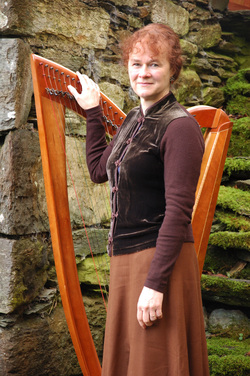
Kristin Gleeson
I am delighted to welcome my good friend, and fellow Knox Robinson Publishing author, Kristin Gleeson as a guest onto my website. Kristin writes both biographies and historical novels and recently achieved an amazing 'double first,' when she accomplished something that would-be authors can only dream about.
While on a romantic break in Italy with her husband, she received emails from two different publishing houses offering her contracts for both her historical novel, 'Selkie Dreams' and her biography about a First Nations Canadian woman entitled, 'Anahareo: A Wilderness Spirit.'
In an industry where it is notoriously difficult to get a break, Kristin had achieved the impossible. She was about to become a published author of not one, but two books simultaneously.
All her ships had sailed home to port at once.
Originally from Philadelphia, Kristin Gleeson lives in Ireland, in the West Cork Gaeltacht, where she teaches art classes, plays harp, sings in an Irish choir and runs two book clubs for the village library. She holds a Masters in Library Science and a Ph.D. in History, and for a time was an administrator of a national denominational archives, library and museum in America. There she handled the letters, diaries, reports and artefacts of Alaskan missionaries and assisted Tlingit Indians in recovering their land and their past. Later, she served as a public librarian in America and in Ireland.
She has also published short stories and historical essays. Her essay, ‘Blazing Her Own Trail: Anahareo’s Rejection of Euro-Canadian Stereotypes’ was published in, Recollecting: Lives of Aboriginal Women of the Canadian Northwest and Borderlands edited by Sarah Carter and Patricia McCormack, Athabasca University Press, which has awarded the Canadian Historical Association prize for Canadian Aboriginal History.
While on a romantic break in Italy with her husband, she received emails from two different publishing houses offering her contracts for both her historical novel, 'Selkie Dreams' and her biography about a First Nations Canadian woman entitled, 'Anahareo: A Wilderness Spirit.'
In an industry where it is notoriously difficult to get a break, Kristin had achieved the impossible. She was about to become a published author of not one, but two books simultaneously.
All her ships had sailed home to port at once.
Originally from Philadelphia, Kristin Gleeson lives in Ireland, in the West Cork Gaeltacht, where she teaches art classes, plays harp, sings in an Irish choir and runs two book clubs for the village library. She holds a Masters in Library Science and a Ph.D. in History, and for a time was an administrator of a national denominational archives, library and museum in America. There she handled the letters, diaries, reports and artefacts of Alaskan missionaries and assisted Tlingit Indians in recovering their land and their past. Later, she served as a public librarian in America and in Ireland.
She has also published short stories and historical essays. Her essay, ‘Blazing Her Own Trail: Anahareo’s Rejection of Euro-Canadian Stereotypes’ was published in, Recollecting: Lives of Aboriginal Women of the Canadian Northwest and Borderlands edited by Sarah Carter and Patricia McCormack, Athabasca University Press, which has awarded the Canadian Historical Association prize for Canadian Aboriginal History.
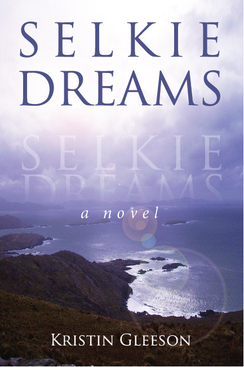
Selkie Dreams
So how did you first get into this crazy world of novel writing? When did you first start writing fiction?
I loved stories and being read to when I was very young and would make them up in my head when no one was around to read them to me. Then when I could read them myself I would still imagine them in my head when I was in places I couldn’t read, like church (whiled away many hours there). I guess I was about 8 when I started my big novel writing adventure when I wrote ‘Professor Dealy’s Inventions,’ complete with illustrations. It was a big hit among my dolls.
What attracted you to the genre of Historical Fiction?
I’ve always been passionate about history and ending up taking two degrees in it. It’s the people in the history that attracts me the most, their stories, all of which make up history. I guess it all started with King Arthur and Merlin when I was really young, a magic sword, an eccentric wizard and a kingdom at your feet. Who could resist?
In those early days, how did you juggle the demands of family life with a writing career and the day job?
It’s still early days for me, I suppose. I’m fortunate at this point that I teach art classes part time and that allows a lot of flexibility. On the other hand, over the years I have had to squeeze my writing into various different schedules and responsibilities. I moved from America to England and then from England to Ireland where we renovated an old farmhouse, all of which required a creative approach to finding time to write. When we first moved to Ireland we had no electricity so I resorted to writing by hand by oil lamp. Great background experience for writing historical novels!
I loved stories and being read to when I was very young and would make them up in my head when no one was around to read them to me. Then when I could read them myself I would still imagine them in my head when I was in places I couldn’t read, like church (whiled away many hours there). I guess I was about 8 when I started my big novel writing adventure when I wrote ‘Professor Dealy’s Inventions,’ complete with illustrations. It was a big hit among my dolls.
What attracted you to the genre of Historical Fiction?
I’ve always been passionate about history and ending up taking two degrees in it. It’s the people in the history that attracts me the most, their stories, all of which make up history. I guess it all started with King Arthur and Merlin when I was really young, a magic sword, an eccentric wizard and a kingdom at your feet. Who could resist?
In those early days, how did you juggle the demands of family life with a writing career and the day job?
It’s still early days for me, I suppose. I’m fortunate at this point that I teach art classes part time and that allows a lot of flexibility. On the other hand, over the years I have had to squeeze my writing into various different schedules and responsibilities. I moved from America to England and then from England to Ireland where we renovated an old farmhouse, all of which required a creative approach to finding time to write. When we first moved to Ireland we had no electricity so I resorted to writing by hand by oil lamp. Great background experience for writing historical novels!
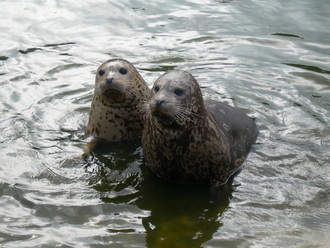
A 'selkie' is a mythological Celtic creature
How easy –or hard - was it for you to find ideas for your second novel or second series?
I’m lucky in that I have more ideas than time to write. I have several folders on my computer with ideas fleshed out to different degrees. I get my ideas various sources—could be the TV, the newspaper, talking with people, a book, or even staring out the window on a train journey (or overhearing something on a train journey).
How do you ensure that the setting, characters and details in your novels are authentic and unique?
I do try and research as much as possible the setting if I haven’t been there before. Since the introduction of the internet it has been much easier to even see the place through video clips, photos and website descriptions. There’s bound to be some kind of youtube clip or tourist website for most settings so it’s hard to go wrong. For Selkie Dreams, I was fortunate that I’d been to that area of Alaska, but in actual fact I’ve never been to Belfast. I studied images of both Alaska and Belfast for the time period, the late 19th century, to ensure that I could create an accurate picture and also read a few books. I also studied maps of Belfast for that period too, to trace a believable path for Máire’s walk through the streets.
My characters in the novel are created and so it is a case of ensuring that they are believable for the time period and culture. For the Tlingit Indians in Selkie Dreams I researched the culture and relied on my conversations with Tlingit and the curator of the Sheldon Jackson Museum to help as well.
I’m lucky in that I have more ideas than time to write. I have several folders on my computer with ideas fleshed out to different degrees. I get my ideas various sources—could be the TV, the newspaper, talking with people, a book, or even staring out the window on a train journey (or overhearing something on a train journey).
How do you ensure that the setting, characters and details in your novels are authentic and unique?
I do try and research as much as possible the setting if I haven’t been there before. Since the introduction of the internet it has been much easier to even see the place through video clips, photos and website descriptions. There’s bound to be some kind of youtube clip or tourist website for most settings so it’s hard to go wrong. For Selkie Dreams, I was fortunate that I’d been to that area of Alaska, but in actual fact I’ve never been to Belfast. I studied images of both Alaska and Belfast for the time period, the late 19th century, to ensure that I could create an accurate picture and also read a few books. I also studied maps of Belfast for that period too, to trace a believable path for Máire’s walk through the streets.
My characters in the novel are created and so it is a case of ensuring that they are believable for the time period and culture. For the Tlingit Indians in Selkie Dreams I researched the culture and relied on my conversations with Tlingit and the curator of the Sheldon Jackson Museum to help as well.
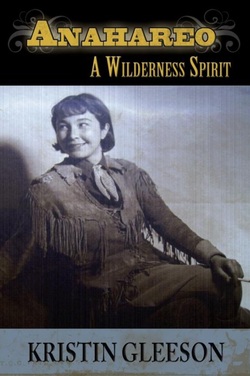
Kristin's biography of Anahareo
What are your plans for the future?
Live to 100 so I can write all the stories in my head. That and read all the books that I have on my ‘bucket list.’
What is the best part of being a writer?
Creating the stories and being able to share them with others who enjoy them. Sounds corny but it’s true.
What was the worst/ most difficult thing you have had to deal with?
I assume you mean in terms of my writing career. I suppose it was the deafening silence I had from agents when I first submitted queries online after moving to Ireland. There was no sense of closure and initially I would often wonder if they even read emails. I eventually realized that the publishing industry had gone to a lower level with all the recent pressures and changes in the industry. But even with that knowledge it was difficult and seemed worse than an outright rejection letter.
Have you any advice for newbie authors?
Well, as I’m a newbie myself in terms of publishing a novel, I can only repeat what others have said to me, and that is don’t write to the market because it will change quickly and read the area/genre you write in as much as possible.
Thank you, Kristin. I cannot wait to read 'Selkie Dreams' - and 'Anahareo: A Wilderness Spirit.' They're both on my 'bucket list' but I don't intend to wait until I'm 100 before I read them!
Good luck for your future writing.
Live to 100 so I can write all the stories in my head. That and read all the books that I have on my ‘bucket list.’
What is the best part of being a writer?
Creating the stories and being able to share them with others who enjoy them. Sounds corny but it’s true.
What was the worst/ most difficult thing you have had to deal with?
I assume you mean in terms of my writing career. I suppose it was the deafening silence I had from agents when I first submitted queries online after moving to Ireland. There was no sense of closure and initially I would often wonder if they even read emails. I eventually realized that the publishing industry had gone to a lower level with all the recent pressures and changes in the industry. But even with that knowledge it was difficult and seemed worse than an outright rejection letter.
Have you any advice for newbie authors?
Well, as I’m a newbie myself in terms of publishing a novel, I can only repeat what others have said to me, and that is don’t write to the market because it will change quickly and read the area/genre you write in as much as possible.
Thank you, Kristin. I cannot wait to read 'Selkie Dreams' - and 'Anahareo: A Wilderness Spirit.' They're both on my 'bucket list' but I don't intend to wait until I'm 100 before I read them!
Good luck for your future writing.
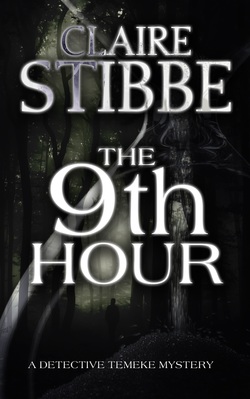
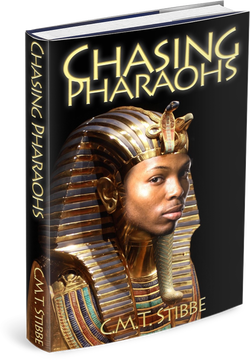
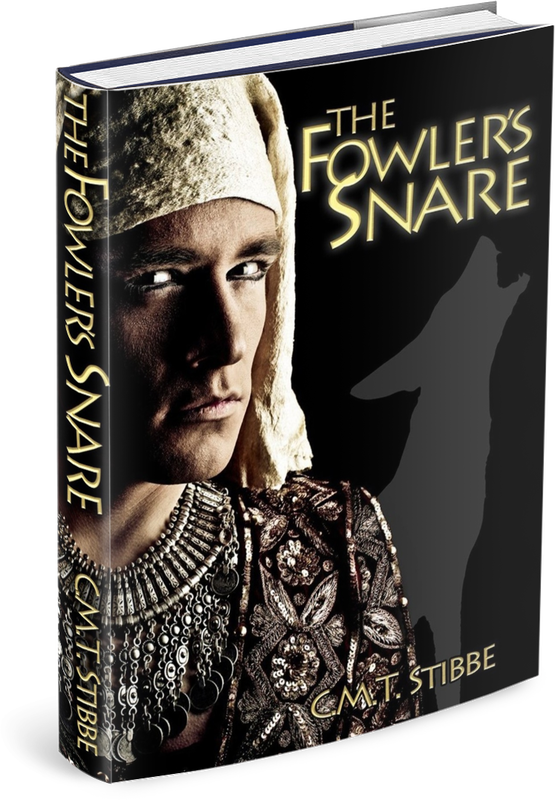
 RSS Feed
RSS Feed